Search
Did you mean: Timur?
Search Results

Image
Nippur
Ruins of the Temple of Enlil at Nippur.

Article
Poor Man of Nippur
The Poor Man of Nippur (c. 701 BCE) is a Babylonian poem on the themes of the obligations of hospitality and revenge for an undeserved injury. A poor man of the city of Nippur feels mistreated when he visits the mayor and then goes to great...
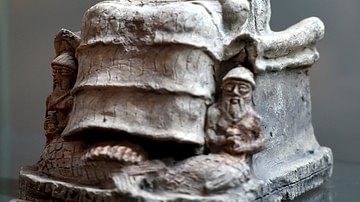
Article
Enki's Journey to Nippur
Enki's Journey to Nippur (c. 2000 BCE) is a Sumerian origin myth explaining the creation of the temple at Eridu by the god Enki and how musical instruments were ordained for use in festivals in ancient Mesopotamia. The poem formed part of...
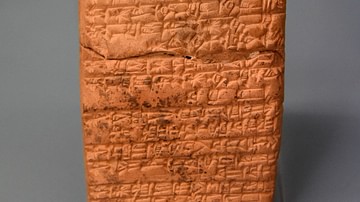
Article
Shulgi and Ninlil's Barge
Shulgi and Ninlil's Barge is a Sumerian poem dated to the reign of Shulgi of Ur (2029-1982 BCE) celebrating the caulking of the barge of the goddess Ninlil, consort of the sky god Enlil, and the banquet held in the couple's honor by Shulgi...
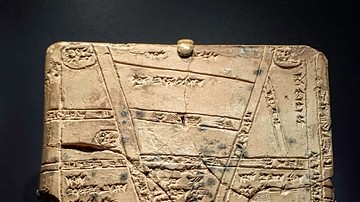
Image
Babylonian Clay Map from Nippur
A Babylonian cuneiform tablet with a map of the fields, towns and palaces around Nippur. Kassite Period, 1550-1450 BCE. Nippur, Iraq.

Image
Terracotta Tablet from Nippur
This clay tablet (with its clay envelope) was a legal document which documented the purchase of a house property. From Nippur (modern Nuffar, Al-Qadisiyah Governorate, Iraq), southern Mesopotamia. Old-Babylonian era, 1757 BCE. (Istanbul Archeological...
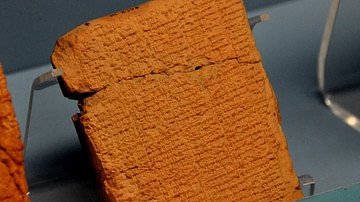
Image
Law Code Tablet of King Hammurabi from Nippur
This terracotta tablet is a smaller version of the original Code of Hammurabi to be used in schools and courts. The tablet was found at Nippur (modern Nuffar, Al-Qadisiyah Governorate, Iraq), southern Mesopotamia. Old Babylonian era, 1790...
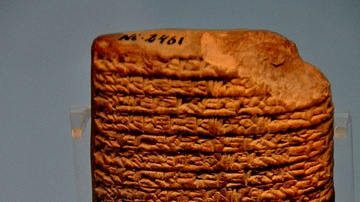
Image
Love Poem Tablet from Nippur
A terracotta tablet with cuneiform inscriptions that narrates a love poem. This is the oldest love poem ever known. The poem was probably written by an unknown woman who was chosen as a bride for Shu-Sin, King of Ur, III dynasty. The poem...
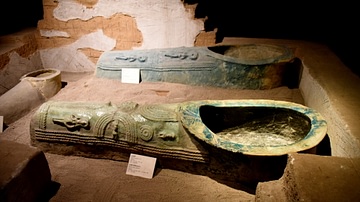
Image
Glazed Sarcophagi from Nippur
The smaller sarcophagus on the left belonged to a child. Baked clay and glazed. Parthian, 1st century BCE to 1st century CE. From Nippur, Southern Mesopotamia, in modern-day Iraq. (Museum of Archaeology, Istanbul, Turkey).
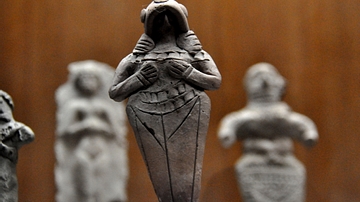
Image
Clay Figurine of a Naked Woman from Nippur
Clay figurine of a naked woman. She puts her hands on her breasts. Probably votive. From Nippur, Iraq. Isin-Larsa Period, 2000-1800 BCE. (The Sulaymaniyah Museum, Iraq).